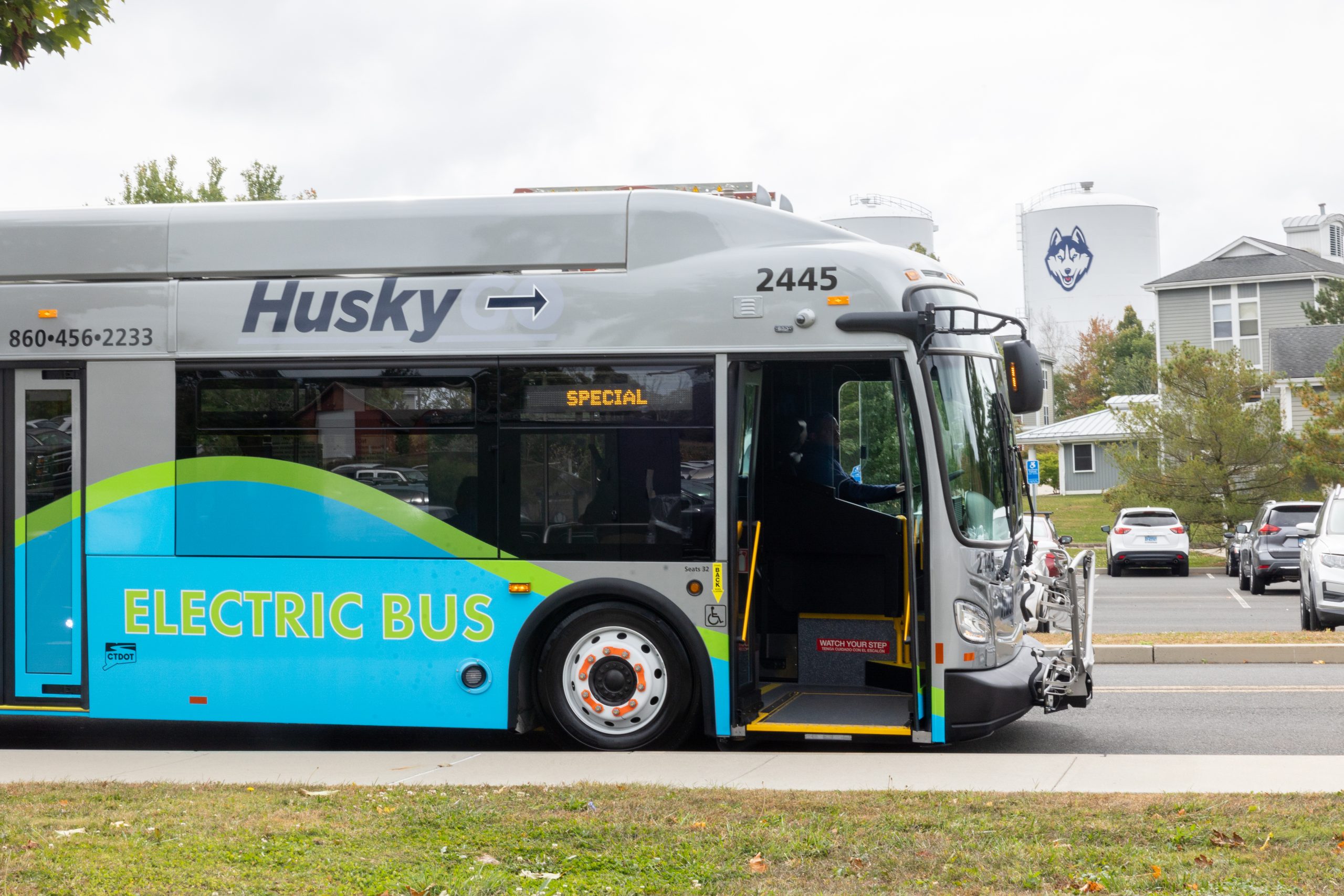UConn Storrs Embraces Green Transit: Electric Buses and Hydrogen Fuel Initiatives
Key Ideas
- UConn Storrs is transitioning to clean-energy transportation options with the introduction of two new battery electric buses for campus use.
- The initiative is part of a broader plan to achieve carbon neutrality by 2030 and includes the installation of a hydrogen fuel dispenser and replacement of utility fleet vehicles with hydrogen-fueled models.
- The electric buses feature amenities like bicycle racks, phone charging ports, and comfortable seating, contributing to a sustainable and comfortable transportation experience for students.
- The State of Connecticut aims to electrify 30% of medium and heavy-duty transit fleet by 2030 and 100% by 2035, with UConn serving as a model for other states in clean energy transportation.
For over a century, buses powered by fossil fuels have been the norm for transportation at UConn Storrs, but a new era of clean energy transit is dawning. The State of Connecticut is providing two new battery electric buses to the Windham Regional Transit District for use on the UConn campus, aligning with the state's push for clean energy solutions. These electric buses emit no tailpipe emissions and offer modern features like bicycle racks, phone chargers, and comfortable seats.
In addition to the electric buses, UConn is making strides towards carbon neutrality by 2030. Initiatives include installing a hydrogen fuel dispenser, replacing aging fleet vehicles with hydrogen models, and adding hybrid buses to the fleet. The university's commitment to sustainability extends to adding more electric vehicle charging stations on campus and statewide.
The transition to green-energy sources for transportation is seen as a crucial step in achieving carbon neutrality, with President Radenka Maric emphasizing the impact of this shift. By leading in the adoption of clean energy transit, UConn and Connecticut set an example for other states to follow, showcasing a commitment to environmental wellness.
The two new electric buses are expected to join the campus routes in the upcoming spring semester. With a range of 150-180 miles per charge in winter and 200-220 miles in summer, these buses are well-suited for the campus environment. They will replace older diesel buses, contributing to reduced greenhouse gas emissions and air pollution. UConn's move towards clean energy mass transit demonstrates a commitment to sustainability that dates back to the earliest days of bus service at Storrs.
